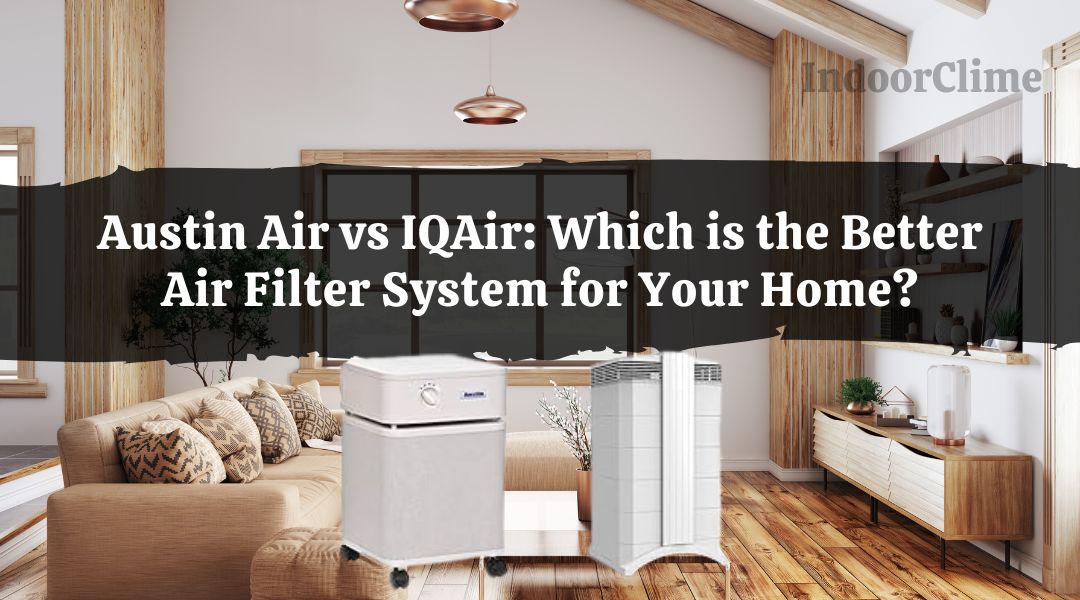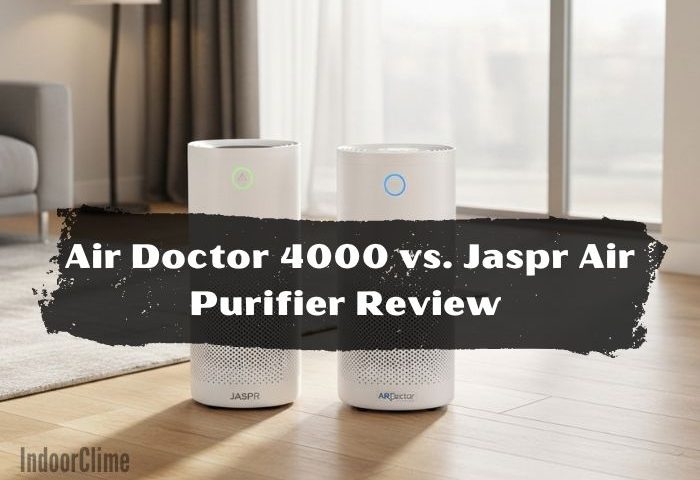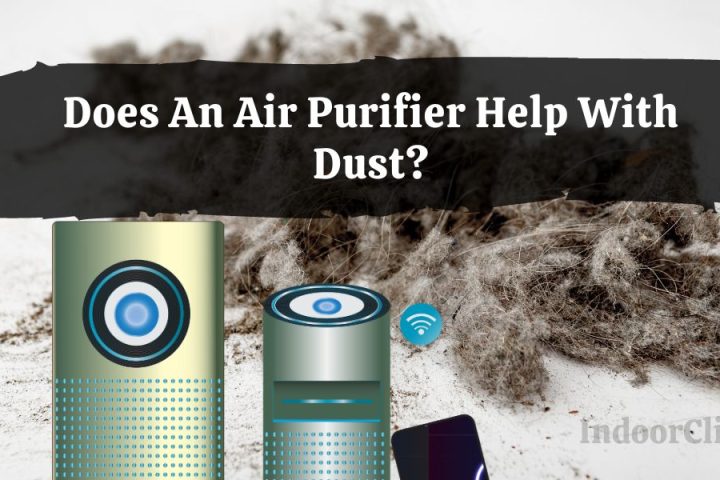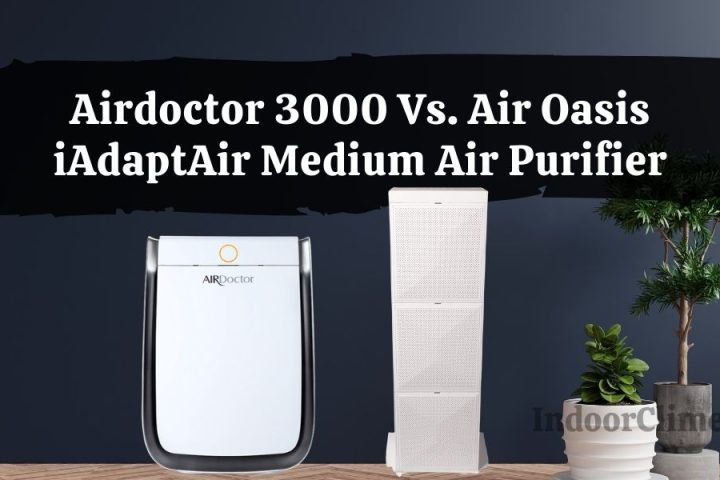Although the threat of COVID-19 has significantly subsided over the past couple of months, the desire for cleaner air circulation is still necessary in homes or establishments, especially if we care for children prone to the harmful effects of pathogens.
Two of the popular brands of air filtering systems that can help you achieve your goals are Austin Air and IQAir. We will review Austin Healthmate Plus and IQAir HealthPro Plus Air Purifiers.
Austin Air features a single yet reliable cylindrical combination filter. It has several layers of filtration that ensure the quality of air circulation.
However, it is not the most energy-efficient, which may not suit people trying to save money on electricity bills.
While IQAir has a wider coverage other than the layers of filtration. However, a drawback of the equipment is that it is a little pricey and may not be energy-efficient either.
If you are unsure which filtering system is best for you, the article I prepared will explain the subject matter and its specifications to help you determine what will provide you with the best results.
Austin Air Healthmate Plus Purifier
Austin Air Purifier boasts a three-stage filtering system that includes a fabric pre-filter, carbon and zeolite mixture gas-type filter, and a HEPA-approved particle filter-type that clears out allergens, microscopic compounds, and other harmful pathogens.
To improve its efficacy, it offers three fans that filter a wide area of the vicinity.
However, as mentioned, it is not the most energy-efficient air filtration system, especially for people who are trying to cut down on electricity bills.
In addition, it is a little heavy, weighing approximately 47 pounds. The following is a list of its pros and cons to understand its advantages and drawbacks better.
Carbon is a common component in any filtration system, but what makes Austin Air unique is the utilization of zeolite as the main compound for clearing particles in the air. Carbon is effective against allergens and other solid microscopic particles but may not be as good when filtering chemicals and gasses.
That said, having Zeolite in your filtration system is particularly helpful, especially when you frequently use bug spray or other cleaning solutions in your home. Once the cleaning solutions and pesticides serve their purpose, turning on Austin Air can help you eliminate the lingering odor they emit.
Although about 47 pounds is slightly heavy, the 15-pound gas filtration system provides a high capacity to eliminate microscopic pathogens and toxic odors. A regular filtration system offers about one pound of carbon filter with limited efficacy. In addition, having a larger filtration screen is cost-efficient because you don’t have to replace it every once in a while.
Pros
Cons
IQAir Purifier
The Swiss company making IQAir Purifier units has been around for six decades. However, make no mistake about its effectiveness in filtering air circulation because it is as capable as the Austin Air Purifier. In particular, the IQAir filtration unit touts the HyperHEPA technology, which is the machine’s primary hallmark.
Furthermore, its certified filtration performance guarantees it will eliminate 99.7% of pathogens lingering in your space. However, it is important to know its flaws to determine if they’re a right fit for your home or any establishment. The pros and cons you must account for are listed below.
IQAir offers a 5-pound filtration system that houses its HyperHEPA technology. Although it is significantly lower than Austin Air’s 15-pound gas filtration set, it is capable enough compared to regular air filters and powerful in eliminating dust particles and harmful compounds.
Pros
Cons
Design, Size, Weight Comparison
At first glance, the designs of both Austin Air and IQAir are highlighted by their minimalistic aesthetics, which make them perfect for any surroundings.
However, Austin Air has a more industrial vibe with a turn knob located at the bottom of the air purifier system. IQAir is reminiscent of a miniature column with thin grooves that are equally separated from each other and main ventilators located at the topmost part of the equipment.
Another difference between Austin Air and IQAir that you have to take note of is the size. For example, IQAir is approximately 5 inches taller than Austin Air.
IQAir is 28 inches tall, while Austin Air is 23 inches tall. In addition, IQAir has a larger dimension that is 16 inches wider and 15 inches deep. On the other hand, Austin Air has a width of 15 inches and a depth of 15 inches.
Although Austin Air is shorter than IQAir, it is heavier, bulkier, and more inconvenient to store and move around. Austin Air weighs about 47 pounds, while IQAir weighs only 35 pounds.
The size of both air purifiers is due to the weight of the filter system. Even though IQAir is lighter than Austin Air, both are still heavy compared to a regular air purifier brand.
Filters
A three-stage filtering system powers both IQAir and Austin Air. However, they have a unique process for improving air circulation, which includes the following.
Pre-Filter
The first stage of Austin Air’s filtration process is a fabric-type pre-filter. The air goes through metal grills on each air filtration’s corners. The center of the metal grill is a fabric mesh that filters large particles, making it easier for the equipment to improve the air quality in the next stages.
However, IQAir’s pre-filter stage is more advantageous than Austin Air’s because it has a carbon fiber filter. This enhances its capability of capturing solid particles that pass through it.
Gas Filter
After the initial filtration process, the quality of air circulation filters any toxic gasses lingering in the air. Austin Air’s gas filter is composed of carbon and zeolite solution.
This means that the equipment is good at eliminating VOCCs and unpleasant odors. Although its filters are large, the actual gas filters of Austin Air are a common type that you can find in most regular air purifiers.
IQAir’s gas filters are equipped with V5 Filter F8, composed mainly of carbon and alumina. Compared to regular air purifiers, IQAir’s V5 cells contain about 4 to 5 more media fillers.
The equipment’s fibrous carbon filler is enhanced by alumina, effectively capturing odors from strong chemicals.
Particle Filter
The third stage of Austin Air is equipped with HEPA filters that particularly eliminate particles and pathogens such as smoke, dust, molds, allergens, etc.
IQAir’s particle filter utilizes the same HEPA filters but is more efficient because it uses HyperHEPA filter technology.
Performance
Austin Air has three fans that can effectively cover 250 CFM. However, IQAir is more effective because it offers six fans that cover 300 CFM.
IQAir fans also have two arches at the bottom of the equipment, and unlike Austin Air, it has a diffuser on top of the unit for the emulsion of essential oils.
Noise Level
The noise level of Austin Air is decent in the sense that it is comparable to regular brands of air purifiers. In perspective, the average noise level of regular air purifiers is between 60 and 70 dB under a high-speed fan, which is not too loud or not the quietest you’ll ever have.
When it is under the high-speed fan, Austin Air offers a noise level of about 66.1 dB and 42.4 when using the low-speed fan.
On the other end, the noise level of IQAir is much higher since it has six fans. For example, it gives you 72.2 dB when using all its six fans. It produces about 50 dB when it is used on a single fan.
Power Consumption
Austin Air is not the most energy-efficient, as it consumes 94.6 watts of power when using all three of its fans. Even in low-fan mode, it draws 51.3 watts of power, which is still high.
On the other hand, you may find IQAir’s power consumption a little odd because at top fan speed, it consumes an average of 233 watts, and it goes all the way down to 23.2 watts when it only uses a single fan. 233 is too high compared to a regular air purifier’s average of 10 to 80 watts.
Price
Both IQAir and Austin Air are more expensive than regular air purifiers. Depending on the distributor, IQAir has an average retail price of $900.
Although it is 4 to 6 times more expensive, it offers one of the most outstanding warranties of 10 years compared to the 5 to 6 years of product warranty of other brands.
Austin Air’s price is more budget-friendly, at around $500, and it is covered by a 5-year warranty. Austin Air is probably the best product if you are not fully committed to air purifiers.
Maintenance
The good news is that Austin Air and IQAir are easy to maintain. For example, the only maintenance needed for Austin Air is cleaning its vacuum on each side of the unit.
The frequency of maintenance and replacement of filters is about five years.
The IQAir unit requires the same maintenance, but the frequency is four years, including cleaning and replacing the filters.
Summary: Which Is Better?
Performance-wise, IQAir is the best option as it offers an outstanding three-stage filter system. It is enhanced by its six fans that cover about 300 CFM.
However, it is not the most budget-friendly, costing around $900, and it is not the most cost-efficient, consuming about 233 watts of power when using all six fans.
But suppose you are on a tight budget and not particularly meticulous about the specifications of the air purifier. In that case, Austin Air can help you eliminate pathogens and particles in the air without having to break the bank.
It also has three stages of filters that eliminate particles and VOCCs and can cover up to 250 CFM.











